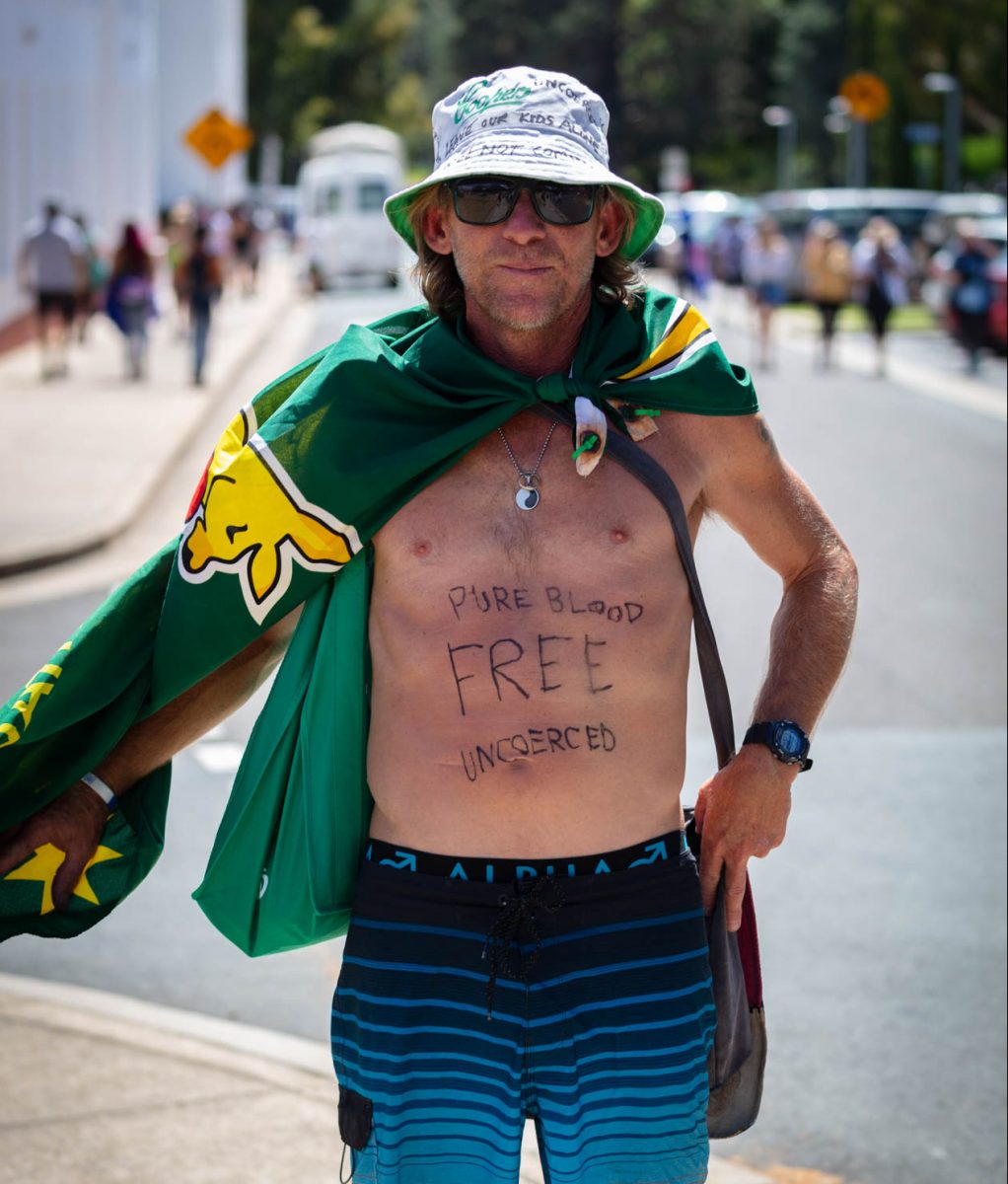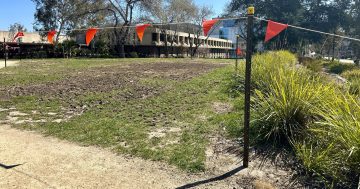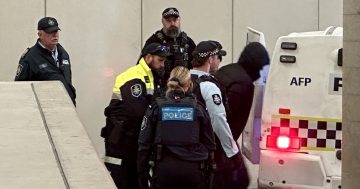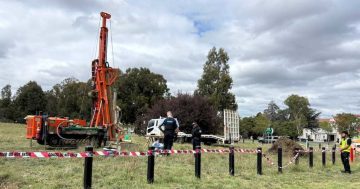
A Freedom Convoy To Canberra protester. Photo: Thomas Lucraft.
For a brief moment, there seemed to be almost admiration from ACT Chief Police Officer Neil Gaughan for the motley crew of protestors who have become disparagingly referred to as ‘cookers’, but who prefer to be known as ‘stayers’.
“They survived winter, which I think surprised many of us,” Deputy Commissioner Gaughan said last week.
But almost in the very next breath he made it clear his officers were fed up to the back teeth of the group of about 20 protesters who have been hanging around now for more than 10 months.
Unfortunately, for this hard-bitten group of true believers, who once numbered around 20,000, their protests have failed. But if they continue to hang around, they may achieve something they never set out to do – a rift between ACT Policing and the ACT Government.
Deputy Commissioner Gaughan said dealing with the protestors has become like a game of “whack-a-mole”. You knock them on the head in one corner of Canberra and they pop up grinning in another part.
Arrests have been made, protestors have appeared in court, but the charges have been thrown out. The police blame the lawmakers. They say the legislation has not kept up with the changing environment.
The modus operandi of the gang of 20 has changed, and according to the police, the laws aren’t equipped to deal with these changes.
But if Deputy Commissioner Gaughan was expecting a sympathetic ear from the ACT Government, the response more resembled a tin ear. Attorney-General Shane Rattenbury suggested maybe the police should become better at preparing their cases.
“I am a little bit surprised by the suggestion there is not enough power there,” he said.
“The advice I have, I think we have the right powers. So the question is, is it the powers or is it the way we prosecute it in court? Those details do matter.”
In March, Deputy Commission Gaughan estimated the protestors had cost the ACT Police $2 million. He also made the unfortunate prediction that the group, which numbered about 500 at the time, would be gone after the Federal budget.
“Let them rant and rave and do what they’re doing. And then, hopefully, by Tuesday night, they’ll have left,” he said.
Six months on, this hardy group of souls remain, the price tag is certain to be much higher, and the wear-and-tear on the group of police officers whose task is to keep protests peaceful is showing.
“They’re being a nuisance,” Deputy Commissioner Gaughan said last week. “But my officers are determined. They don’t want to be seen that these people have beaten them.”
Ultimately it will be the patience of the good citizens of the ACT who will determine how this will play out. The police are currently working with the DPP on a strategy that might give them more success before the courts.
But if that fails, and the “whack-a-mole” continues into the summer, many Canberrans will demand action. Especially if the protests lead once again to traffic jams, event disruptions and more. Then the conversation between Deputy Commissioner Gaughan and Minster Rattenbury may become a little more forthright.
As the national capital and the home of our Federal Parliament, we all understand we are going to attract protests. There have been some absolute doozies over the years, and I’m sure most people reading this column have exercised their democratic rights by marching on legislatures.
And some protests last longer than others. The Aboriginal Tent Embassy was established in 1972 and marks 50 years this year, the longest continuous protest for Indigenous land rights in the world.
Shane Rattenbury leads a party built around a movement synonymous with protests. It would be a big call indeed for him to agree to give police extra powers to curtail protests. There are interesting times ahead.
I’m not sure this unique group will last much longer. After standing out in the blazing sun last summer, some claimed they had received burns from sonic weapons and microscopic eavesdropping, and who’s to say these sonic weapons won’t be back in force this summer?



 . Problem both labour and liberal should pass…
. Problem both labour and liberal should pass… 


















